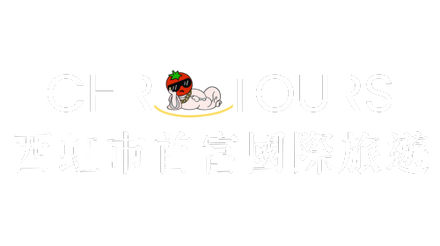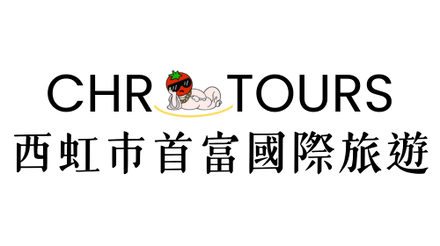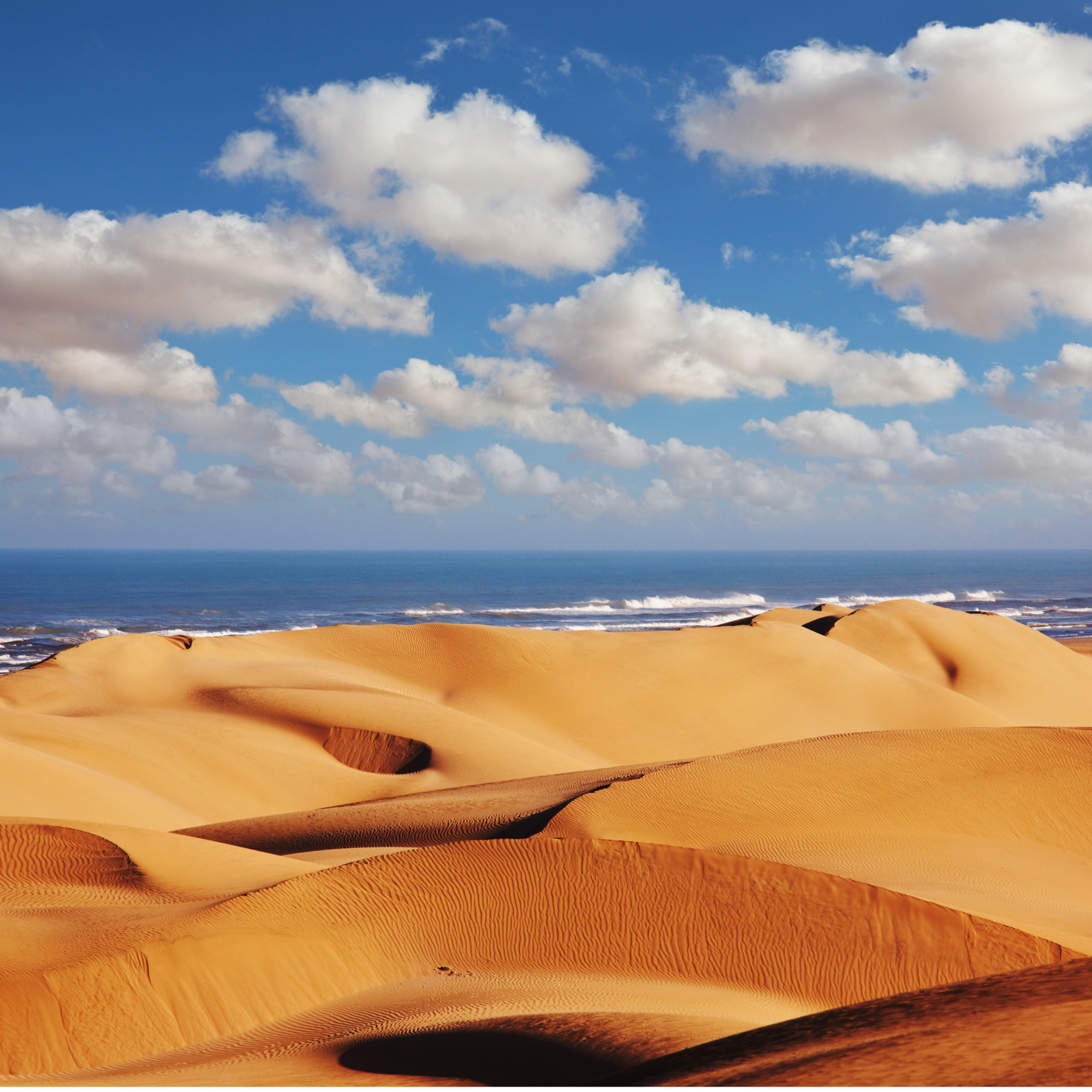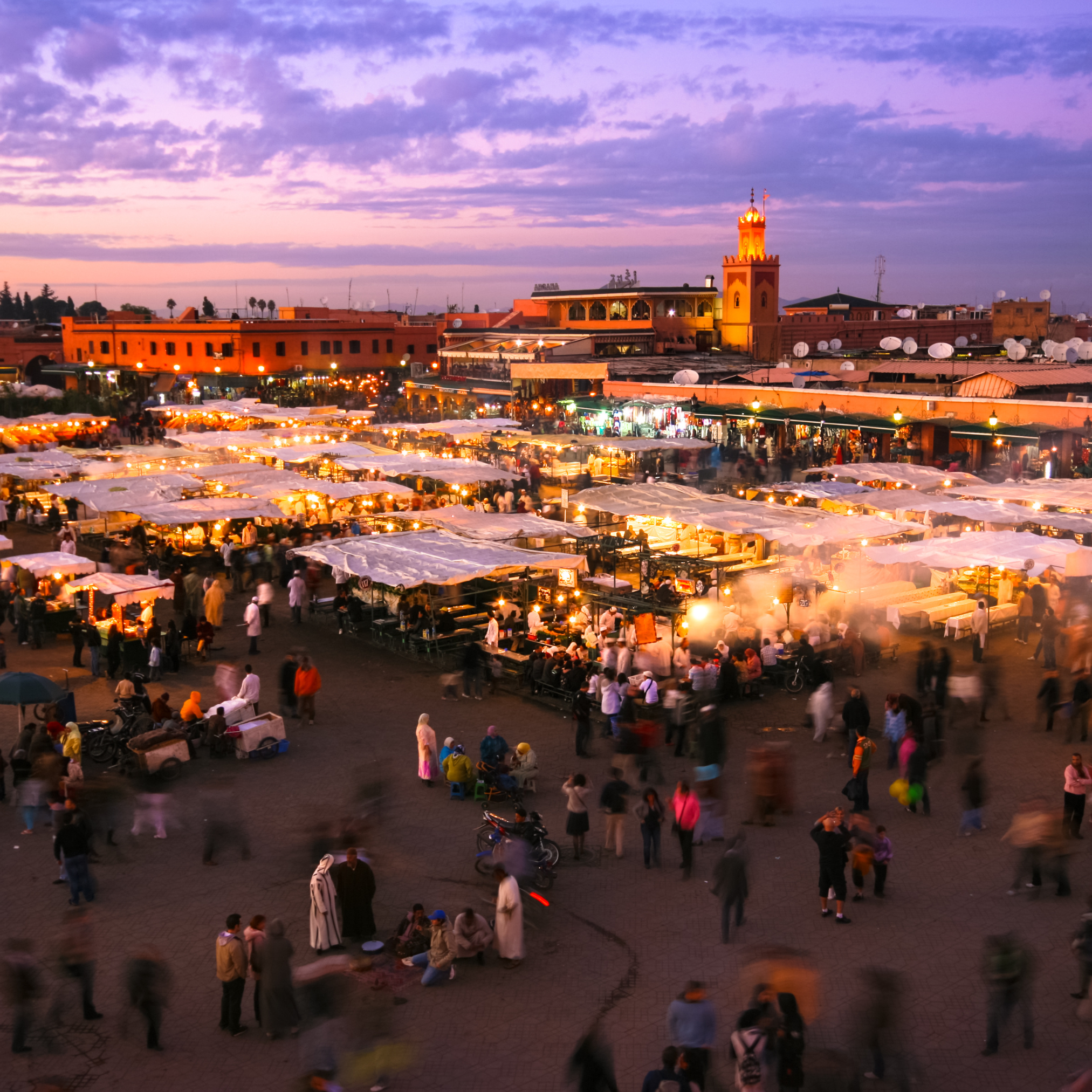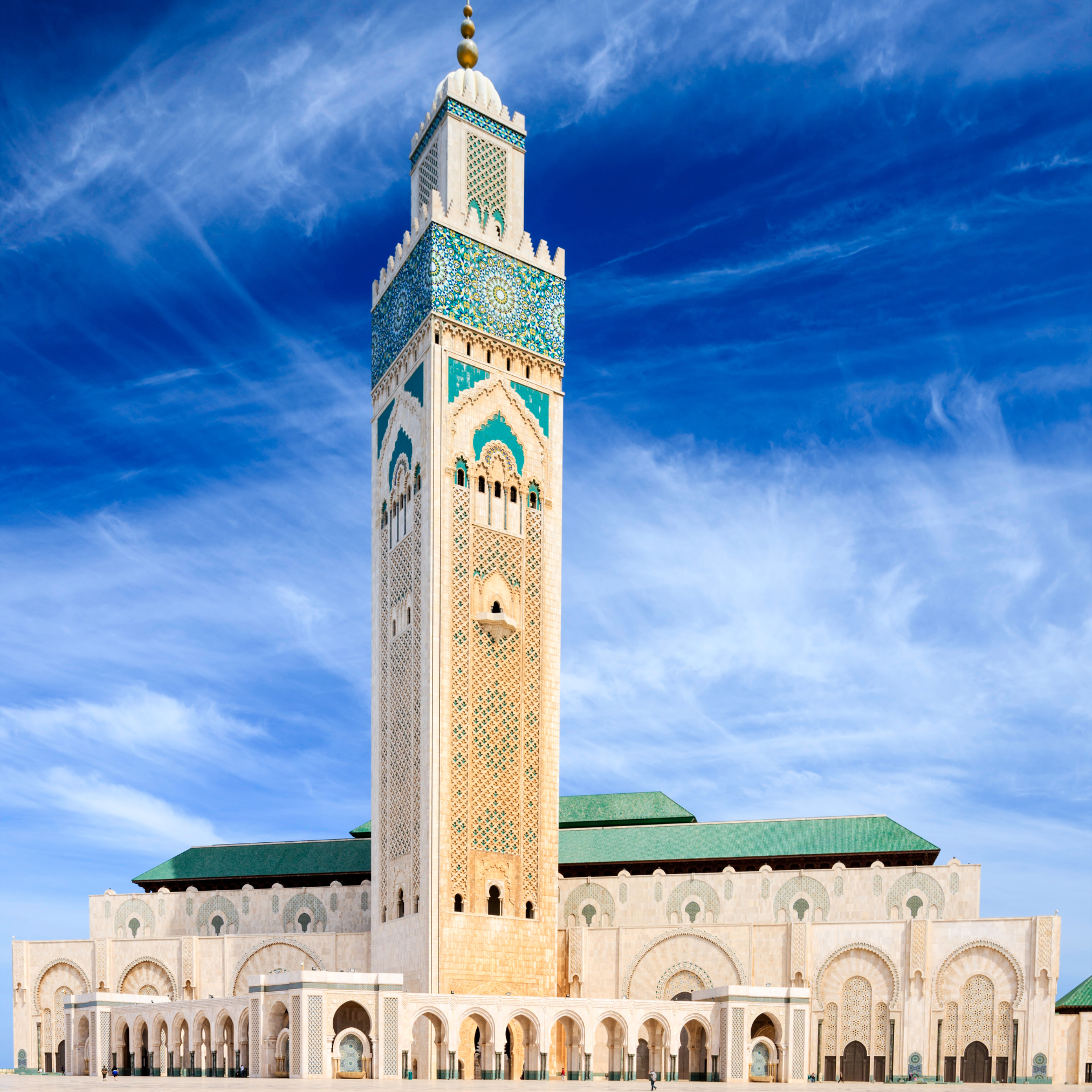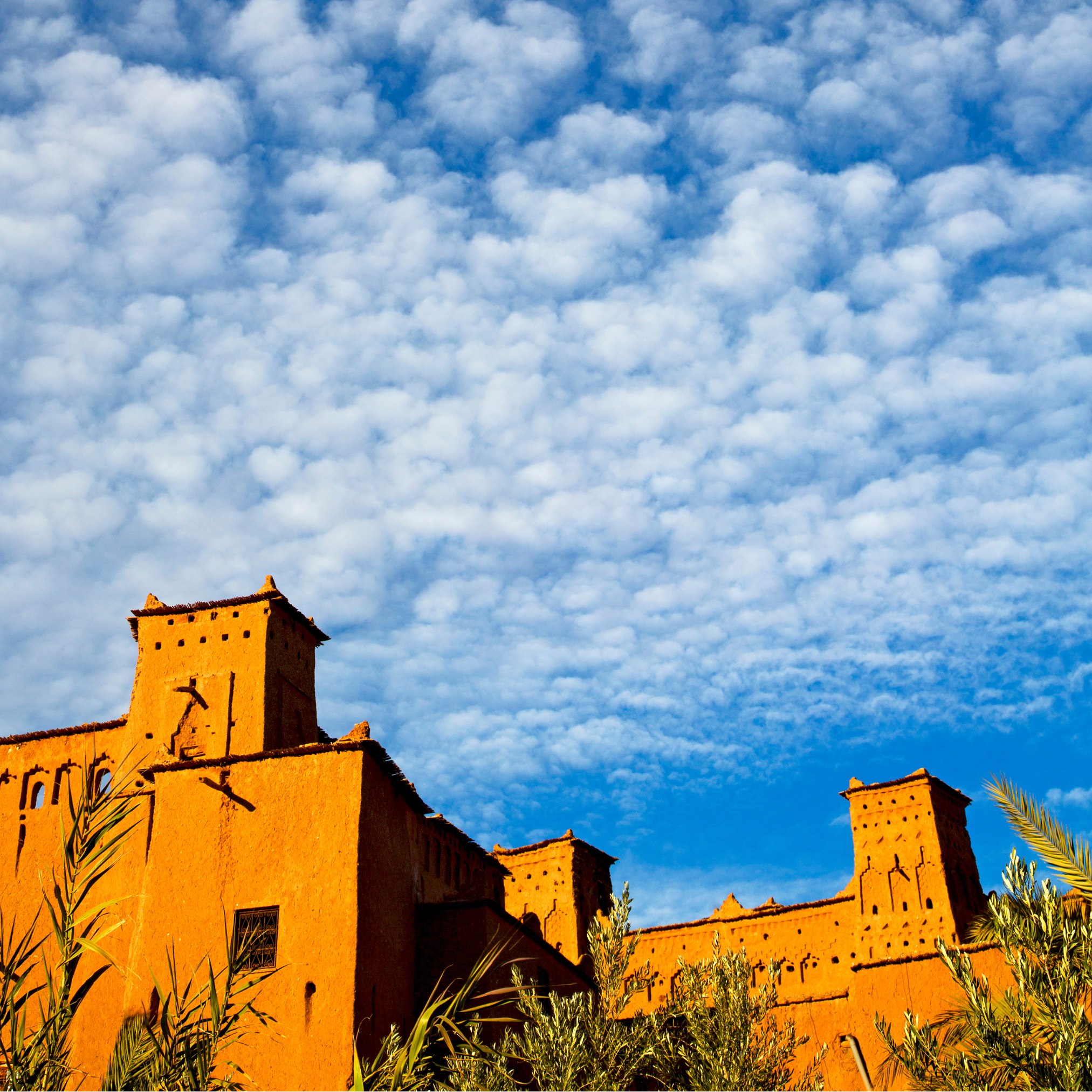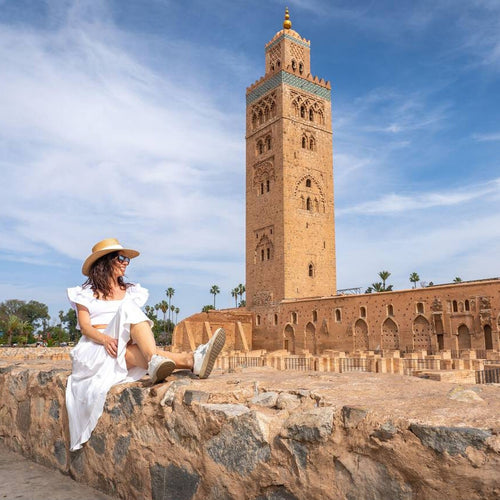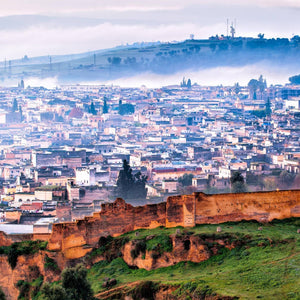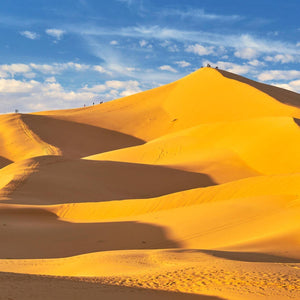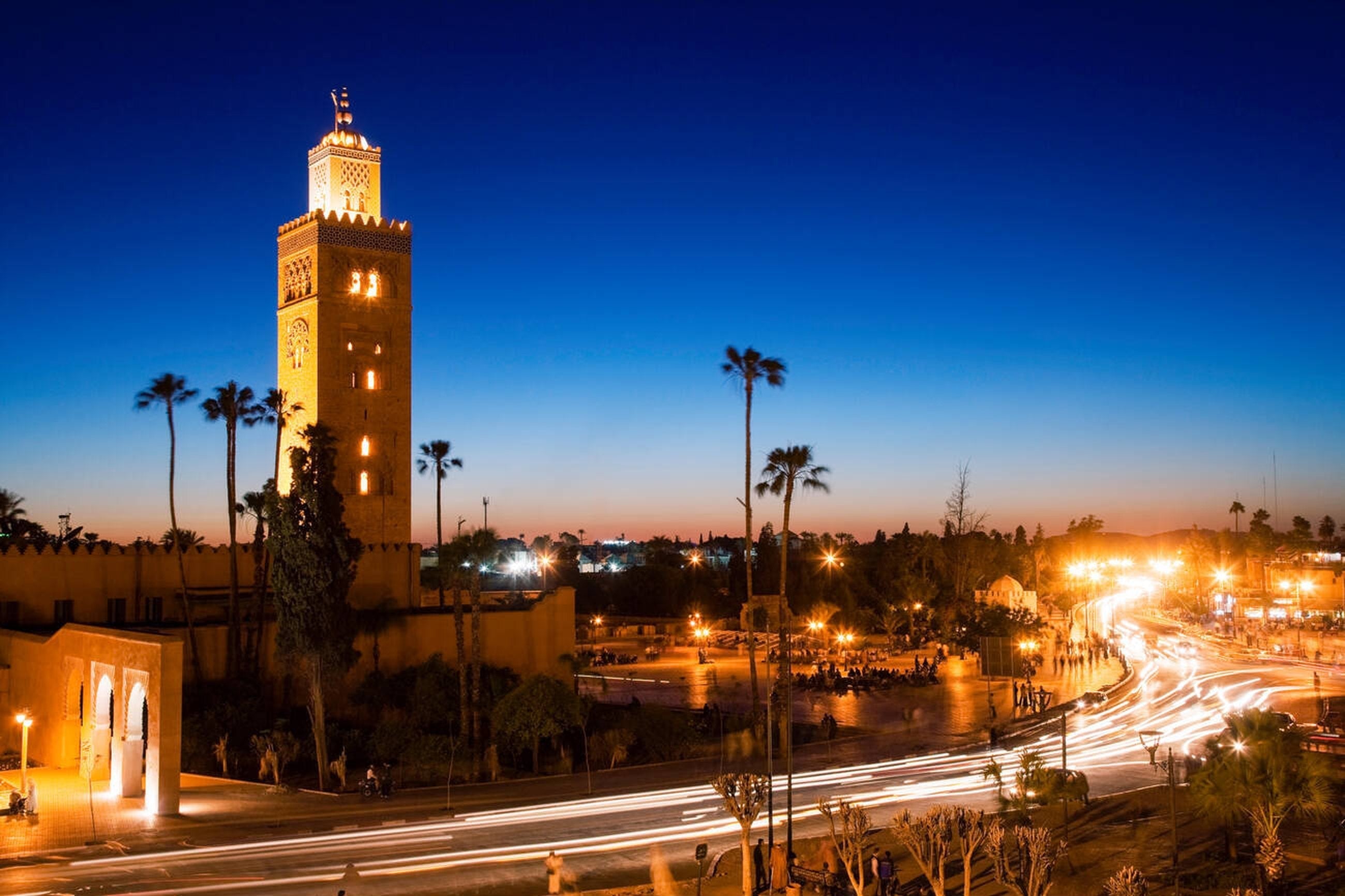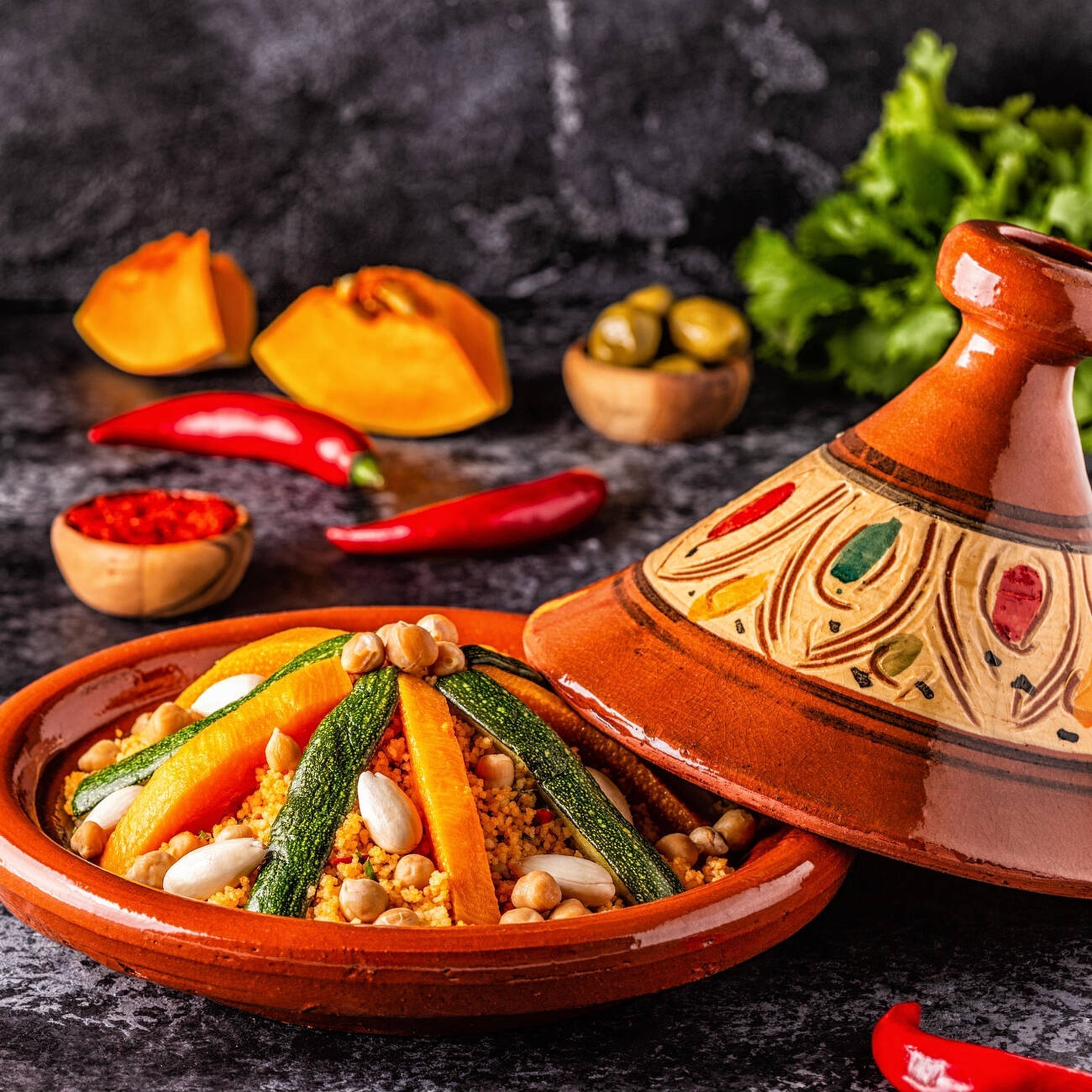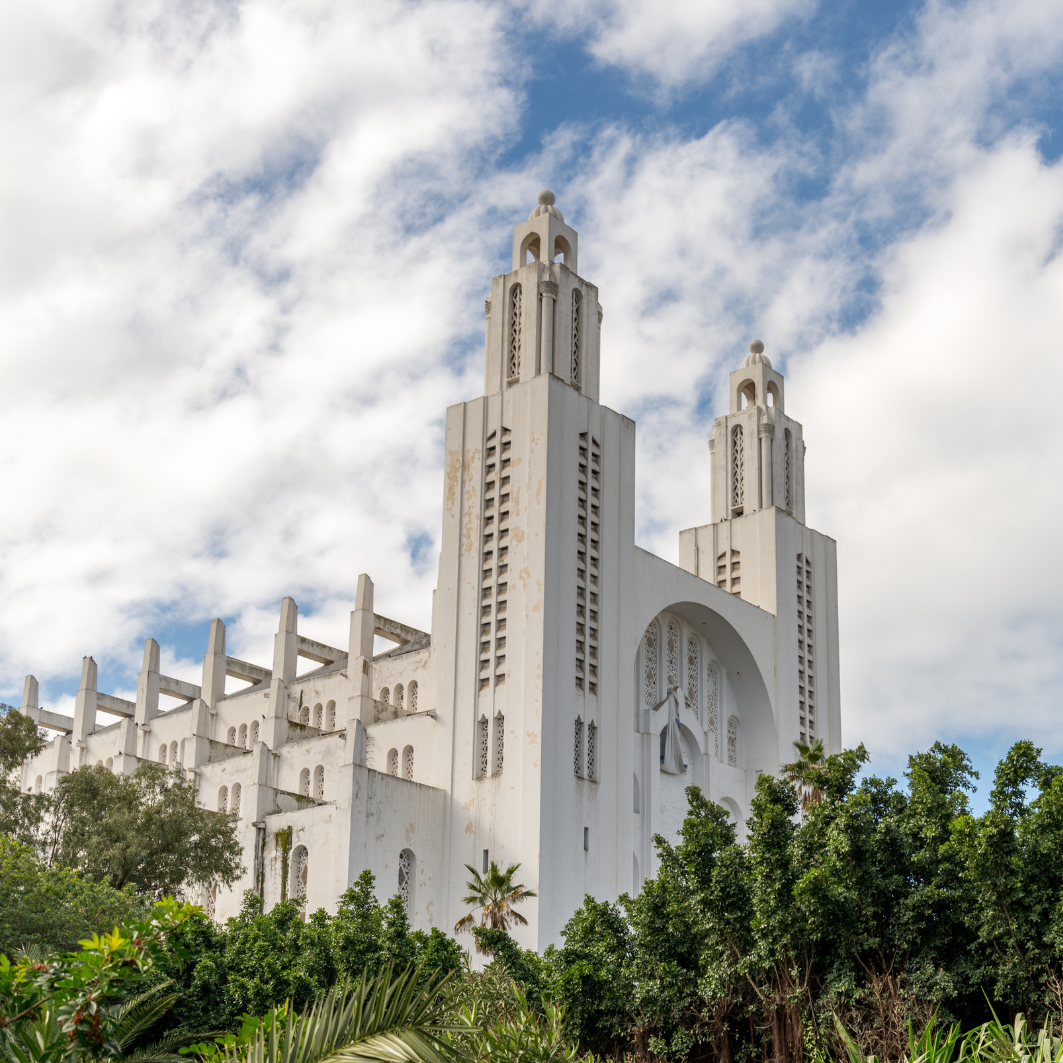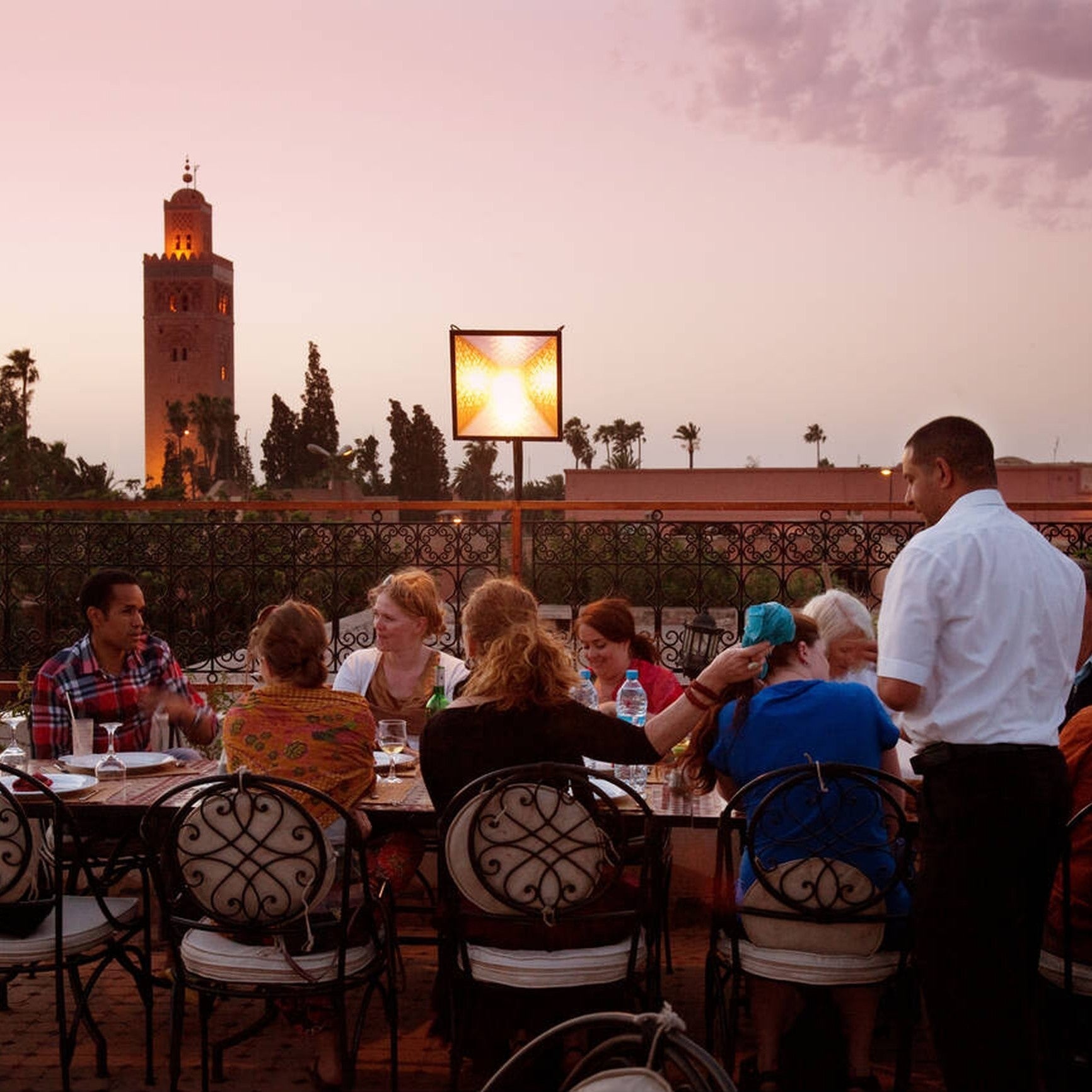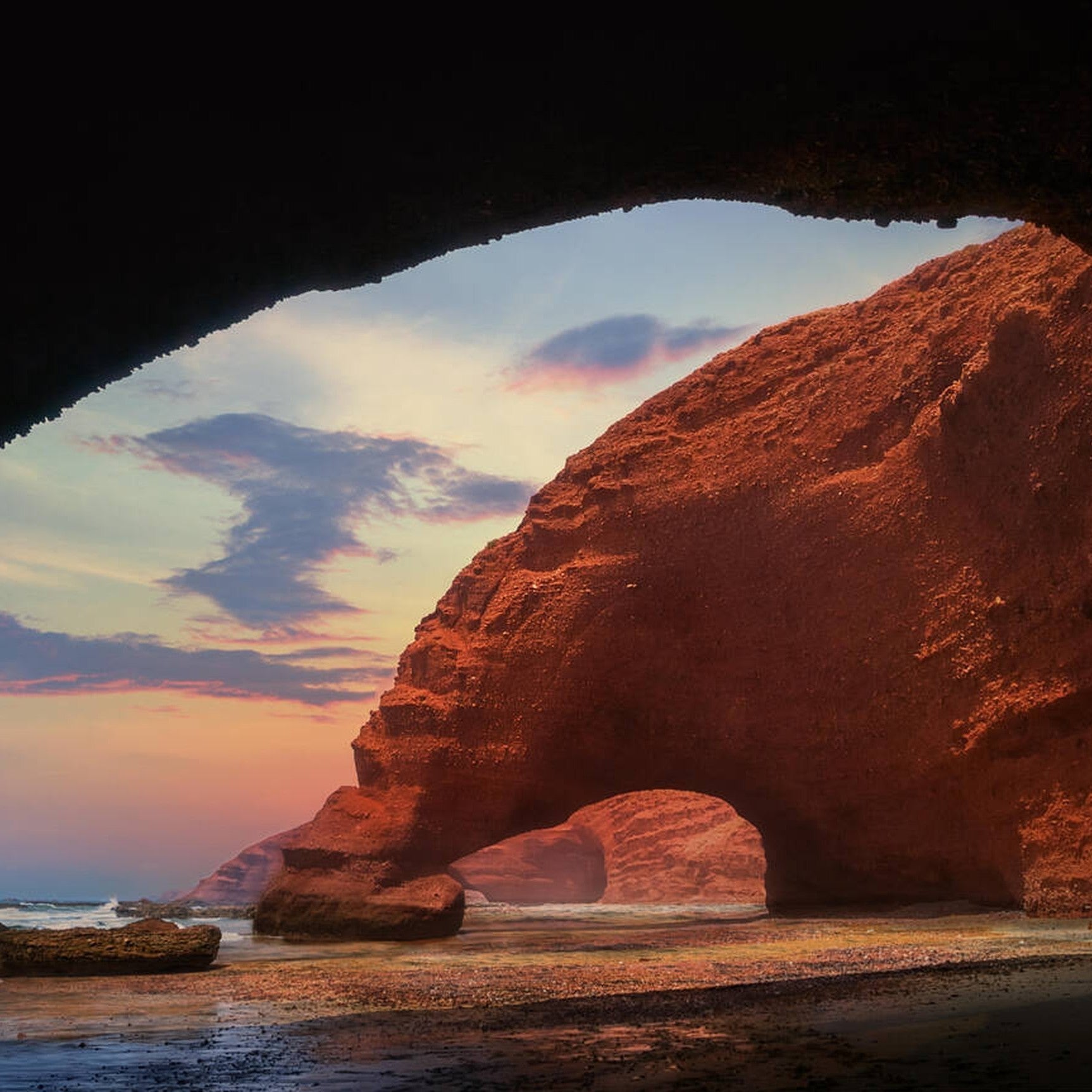Introduction
Morocco, known as the "Garden of North Africa," attracts countless travelers each year. If you're planning a spontaneous trip to this enchanting country, don't miss this detailed guide! From the best times to visit Morocco, to must-see attractions, to preparation tips and precautions, this guide has everything you need to ensure a joyful and fulfilling journey in Morocco.
Best Time to Visit Morocco
The best months to visit Morocco are in spring (March to May) and autumn (September to November), due to:
• Spring (March to May): The climate is mild, perfect for exploring Morocco's deserts and cities. You can fully experience the unique charm of places like the Sahara Desert and Jemaa el-Fnaa Square in Marrakech.
• Autumn (September to November): Similarly pleasant weather makes this an ideal season to explore historical sites and beaches. Visit the ancient city of Fes for a touch of history, or enjoy the Atlantic breeze in Casablanca while taking in the country’s natural beauty.
Do you need a visa to visit Morocco?
Morocco is visa-free for many countries. Citizens of all EU countries, the United States, Canada, mainland China, Macau and Hong Kong can enter Morocco without a visa with their passports, and the deadline for stay is no more than 90 days. If you want to know whether your country complies with Morocco’s visa-free policy, you can check it on the official website of the Moroccan government.
Do I need to get any vaccinations before going to Morocco?
Morocco does not have any mandatory vaccination policy, but you can choose whether to get vaccinations such as rabies and hepatitis (A & B) according to your personal situation.
Should I buy travel insurance when traveling to Morocco?
Unforeseen events always happen, and it is certainly a wise choice to buy travel insurance. However, the cost of medical treatment in Morocco is not as high as in some other countries. If you have minor health problems, you can go to the local public hospital for treatment. The cost is usually not too high, but the service may be crowded and inefficient. If you choose to go to a private hospital or a private clinic of a specialist, although the conditions and efficiency will be better, the cost will also be significantly higher, and the initial consultation fee is usually 300 dirhams.
Health insurance will generally cover these expenses, but if you are very concerned about possible medical problems, it is recommended to choose a policy with comprehensive medical protection, especially if you are not traveling with a group. When purchasing insurance, be sure to read the terms of the contract carefully to understand whether the insurance will cover all possible medical expenses. While some low-cost travel insurance plans may not fully cover all medical expenses, they can usually be cancelled within a certain period of time after purchase, so you can adjust them to your needs.
What is the exchange rate for Moroccan currency?
Currency conversion to Euros is relatively fixed, usually 1 euro = 10.7 dirham, 1 dollar = 9.6 dirham, 1 RMB = 1.37 dirham, but dirhams and RMB cannot be directly exchanged. Since euros are stable and accepted in high-end hotels, restaurants, and shops, exchange enough euros before your trip and convert them to Dirhams in Morocco.
How much money should I bring for a trip to Morocco?
It depends on your travel style. Accommodation typically costs 200–400 Dirhams per night; budget hostels are cheaper. Meals range from 80–150 Dirhams per person at standard restaurants, while upscale dining costs 150–250 Dirhams. Taxis start at 1.7 Dirhams during the day and 2.6 Dirhams at night, with fares at 2.5 Dirhams per kilometer. Buses cost 3–4 Dirhams, and train or intercity tickets range from 100–250 Dirhams.
Which Power Converter Do I Need for Morocco?
The local voltage in Morocco is 220V, and the power plug is a European standard plug (German standard) with two round heads. Please prepare the conversion plug before traveling. If you need to charge a lot of devices, it is best to bring a power strip. You can also buy conversion plugs in stores that sell and repair electronic products and hardware stores, but the quality may not be very good.
What should I pay attention to when entering and leaving Morocco?
Most tourists traveling to Morocco use airplanes, and the main landing places are usually Rabat, Casablanca or Marrakech. Many European flights fly directly to Marrakech, while flights from China and North America mostly land in Casablanca.
When entering Morocco, you need to show the customs officer a printed version of your itinerary, hotel reservation information, and return ticket. If you lack these documents, you may be denied entry, so be sure to prepare them in advance.
Some customs officers may hint or directly ask for tips. In this regard, you should remain calm and firmly refuse unreasonable requests. If you encounter problems, you can contact the inspection or file a complaint.
When leaving Morocco, you must fill out a departure card and indicate your residential address in Morocco on the card, so keep the accommodation information of the last stop.
It may take a long time to queue up at customs, usually about 1 hour, so please be patient. In addition, there may be queue jumping during the queue, so it is recommended to pay attention and plan your time in advance.
Morocco is a country with foreign exchange controls, and the import and export of Morocco's local currency, Dirham, is explicitly prohibited. Tourists can carry a maximum of no more than 2,000 Dirhams in cash when leaving the country, and the excess must be converted into foreign currency in advance or transferred through other legal channels. If you carry more than 50,000 Dirhams in foreign currency, you must hold the declaration form at the time of entry before you can carry it out of the country.
Moroccan customs stipulates that the number of alcoholic beverages you can carry is no more than 1 bottle, the number of cigarettes you can carry is 2 cartons, and you can carry 150 ml of perfume and 250 ml of lotion. In hand luggage, each liquid or gel item shall not exceed 100 ml, and the total volume shall not exceed 1 liter. It should be noted that even if the above standards are strictly followed, liquid items such as argan oil may be refused to be taken out during security checks. Therefore, to avoid unnecessary trouble, it is recommended to put liquid items such as argan oil in checked luggage, or consult the airline and customs in advance about the relevant carrying regulations.
Beware of the risk of bank card fraud
When traveling to Morocco, be especially vigilant about the risk of credit card fraud. Some tourists have used platforms such as Booking to book Moroccan hotels, but have encountered large-scale fraud in Europe or North America before they set off. The amount of fraud far exceeds the booking fee. This phenomenon may be related to the platform's network security loopholes or internal information leaks. Therefore, it is recommended to use virtual card numbers, small credit cards or secure payment tools such as PayPal when booking Moroccan hotels. At the same time, enable the consumption reminder function to monitor transaction dynamics at any time. Be sure to check your credit card bills regularly before and after your trip. If you find any abnormalities, contact the bank immediately to freeze the account in time to avoid unnecessary financial losses.
What language do Moroccans speak?
The language used by Moroccans is a dialect of Arabic (Darija) that is a mix of Berber, French, Spanish, and English, comparable in diversity to the Creole spoken in the Bahamas or Singapore. You may hear several languages used interchangeably in daily conversations, such as "Marhaba! Haltu redu café e thé?" (which means "Hello! Would you like coffee or tea?")
While many people in large cities (especially tourist areas) speak both English and French, you may encounter language problems in small towns, rural areas, or at markets where locals gather. Even if you speak Arabic, you may not fully understand the local dialect. If you use Fosha, Modern Standard Arabic, the locals may smile knowingly because they may think you are being too formal or even reading from an ancient book.
Is it easy to access the Internet in Morocco? Is it expensive? Do I need to buy a local phone card?
In Morocco, most cafes, restaurants and hotels in cities offer Wi-Fi. Even in some remote areas or small villages in the desert, you can find hotels that offer Wi-Fi services. However, the Internet speed in Morocco is generally slow and unstable, so the Internet experience may not be as smooth as in other countries.
Phone cards from many countries, such as China Mobile, can be used in Morocco as long as you activate international roaming services before departure. Of course, you can also buy a local phone card after arriving in Morocco. There are three major local telecom operators in Morocco, Maroc Telecom, Inwi and Orange.
Local phone cards are very cost-effective. After getting off the plane, you can get a free phone card at the operator counter in the airport lobby with your passport. If you don't get one, you can buy a local mobile phone card in the airport arrival hall or at a roadside store in the city. Each card costs about 10-30 dirhams. After purchase, the seller needs to activate your phone card. If you want to surf the Internet on your phone, you need to purchase a data package. 100 dirhams will give you 5-10GB, which can be used for one month.
When making international calls, you need to dial in the format of country code + area code + phone number, while text messages are sent in the format of country code + mobile number. Morocco's area code is 00212. When calling a Moroccan mobile number from other countries, you need to use the format of 00212 + local mobile number.
What do Moroccans eat?
When eating in Morocco, bread is almost the main dish of every meal. Even if you order pizza, you will be served bread and olives as appetizers. This bread tastes similar to baguette, with a hard and tough crust. This bread is both their meal and their tableware, used to dip fried eggs or stewed meat.
Moroccans eat late, breakfast starts at 7 or 8 o'clock, lunch is after 13 o'clock, and dinner is around 20 o'clock. There are many restaurants that cater to locals and open at 19 o'clock in the evening.
Moroccan breakfast is usually flatbread (khobz) with milk, coffee or mint tea, which is simple but very popular.
Common dishes for dinner are tagine and couscous. Tagine is usually stewed with pure meat, of course, there are also vegetarian versions. Moroccan dishes are usually based on spices, and stews are often fragrant.
Although Moroccan cuisine seems to pay attention to the combination of meat and vegetables and balanced nutrition, due to the relatively uniform dishes across Morocco and the fact that Moroccan food and beverage flavors are heavy on spices, although they have a strong aroma, they may not be able to meet people's needs for diverse tastes. Therefore, after eating Moroccan food for a few days, many people will begin to miss other flavors. If you want to adjust your taste buds, trying Chinese food may be a good choice, which can bring some different taste experiences and relieve the fatigue of a single diet.
Because of the strong sunshine, Moroccan fruits are delicious and fresh. Figs have two flavors, green and dark purple, and are sweet and delicious. Cactus fruit is very common along the way, tastes good and is cheap, but because it contains more fiber, you can't eat too much, otherwise it may cause constipation.
Moroccans tend to have a sweet taste in their diet, and even sprinkle powdered sugar and cinnamon powder on some meat dishes to increase the sweetness. Dishes often pay attention to the combination of meat and vegetables, and seem to be nutritionally balanced.
In Morocco, there are few English menus, and even fewer with pictures. Most menus are in Arabic and French. When tourists order food, they often use translation software to guess.
Some Moroccan restaurants and night market stalls do not have plates, but directly use paper on the table as plates. There are no cutlery either, so locals eat with their hands.
There are many cafes in Morocco, which specialize in coffee and mint tea. Moroccan mint tea is very unique, and you may have to drink a cup of tea all day. Most of the time, men will gather outside the cafe, facing the street, chatting, and women are almost invisible in such scenes, which is also a sight.
Tipping Culture
In Morocco, tipping is usually required when dining. Generally speaking, the tip is between 3 and 15 dirhams, which is not a high amount, but it is also a common etiquette. In most restaurants, customers can decide whether to tip and how much to tip. The amount of the tip depends on the type of restaurant, the quality of service, and personal preference, and it is usually not too burdensome.
What to buy in Morocco?
The Morocco Mall in Casablanca is the largest shopping mall in Morocco. Although it is a little far from the city, it has a circular aquarium inside, which is very spectacular and attracts many tourists. The Morocco Mall has luxury brands such as LV, as well as brands with relatively high cost performance. However, it should be noted that the prices here are not cheap. Except for luxury goods, other goods cannot enjoy tax refunds at the airport.
If you want to buy local souvenirs, you can go to the old town and markets (Souks) in Fez, Chefchaouen and Marrakech. There are many kinds of goods and the prices are relatively reasonable. Common souvenirs include Moroccan handmade ceramic plates, ashtrays, traditional costumes, spices, carpets, leather products and bronze. However, these goods are usually not clearly marked, and the initial offer of the shopkeeper is often high, so you need to learn the shopping skills of bargaining. In many cases, the final transaction price is usually about 30% of the initial offer. Some shopkeepers will even wait until you come back before accepting a lower price.
Do Moroccans drink alcohol?
Morocco is a Muslim country. The religious law does not allow drinking alcohol (but many Moroccans have already broken the law). It takes a lot of money and effort to apply for a liquor license to sell alcohol, so most Moroccan restaurants do not have alcohol. If you want to drink, you can only go to some restaurants or hotels in big cities. In big cities such as Casablanca and Marrakech, you can also find bars and nightclubs that like to party until the early morning, but the alcohol in these places is relatively expensive. You can also buy alcohol in liquor stores or large Carrefour supermarkets, but you have to buy it before 8 pm, otherwise these places will be closed according to regulations.
Moroccan beer is expensive, 250ml to 330ml beer, the price is 30 to 60 dirhams. Moroccan red wine tastes okay. A local red wine commonly seen in bars costs about 90 dirhams for 375ml, which is 60 yuan, and 140 dirhams for 750ml, which is less than 100 yuan. The price-performance ratio is still good.
How to dress when traveling in Morocco?
Morocco is a Muslim country, and local women have different dressing habits. Most women only wear headscarves, exposing their cheeks, and some women cover their entire body, exposing only their eyes. As a tourist, your dress is a personal choice, but you need to follow certain dress requirements when you are in formal occasions or religious places. For example, when visiting religious places such as the Hassan II Mosque, there are specific dress standards. The minimum requirement is that women cannot wear skirts or shorts that are below the knee. If you don't want to wear long pants, you can carry a shawl with you, which can protect you from the sun, keep you warm at night, and can also be used as a simple shawl or sarong in formal occasions.
Signals in the old town and the desert
In Morocco, every city has an area called Medina, which is the local old town. Except for coastal cities, the terrain of many old Medinas is mainly climbing up and down, and the street routes are extremely complicated. Among them, the old Medina in Fez is the most complicated, with thousands of alleys interweaving into a maze-like structure, and tourists can easily get lost. In these deep streets, mobile phone signals are usually interrupted and navigation cannot be used. You can only rely on asking locals for advice to find a way out smoothly.
In the desert areas of Morocco, signal coverage is relatively poor. In the desert, there is almost no mobile phone network, and even some basic communication facilities cannot be accessed. You can only climb up the sand dunes to receive ONE signal of one bar and send text messages. Therefore, before entering the desert, be sure to prepare in advance and inform your partners of your itinerary in advance.
Friday is the Muslim Sunday
Every Friday, especially at noon, you will find that most shops are closed. This is because Friday is Muslims’ holy day of worship, referred to in Islam as "Jumu'ah Day," the day for congregational prayers. Allah said in the Quran, "O you who believe! When the call for prayer is made on the Day of Jumu'ah, hasten to the remembrance of Allah and leave off trade." Therefore, on this day, the mosque will be very busy, and most Muslims will go to the mosque to participate in prayer. During this period, many shops and some public facilities will also be closed. When traveling, remember to take this into account when planning your itinerary to avoid unnecessary impact.
Morocco Health Travel Tips
1) It is recommended to drink only bottled water and order extra bottled mineral water (stilled water) in restaurants or cafes, as the water provided with meals is usually tap water. In particular, do not drink water from street stalls, as many places do not have running water to wash and disinfect beverage cups, which may pose a health hazard.
2) The source of water for making ice cubes is usually unknown and is prone to bacteria, so try to avoid adding ice cubes to drinks.
3) Raw vegetables, especially in salads, may not be thoroughly washed and are prone to bacteria or parasites. It is best to choose cooked food or eat in reliable restaurants.
4) On Moroccan beaches, there are usually lifeguards in popular tourist areas in summer, but in other seasons or more remote beaches, safety facilities may be incomplete, so be sure to pay attention to safety.
5) Although the use of marijuana and some drugs is relatively relaxed in Morocco, they are still illegal. Please stay away from related areas and people, and avoid encountering drug use in cafes or bars. On the streets, some people will try to sell marijuana, and some people will even actively sell it to you while walking on the street. Occasionally, you will see people rolling marijuana for sale on street corners or in remote places. They don't care about the tourists around them and often stay in inconspicuous corners. Stay alert and avoid contact with these activities to ensure your own safety.
6) Morocco's urban traffic is relatively chaotic. You need to drive carefully when driving, especially on mountain roads, where visibility is low, so you must remain highly vigilant. Read our Morocco road trip guide to learn about Morocco self-driving tours.
7) In Morocco, except for public transportation, all drivers and passengers must use seat belts. Whether in cities or rural roads, this regulation should be followed to ensure safety.
Morocco Taxi
Taxis in Morocco are mainly divided into two categories: Petit Taxi (small taxi) and Grand Taxi (big taxi).
● Petit Taxi: Mainly operates in the city, the car condition is generally poor, and only a few vehicles are relatively clean. Most Petit Taxi do not use meters, and passengers need to negotiate the price with the driver and confirm whether it is Dirham before getting on the car.
● Grand Taxi: Usually used for long-distance travel between cities, and also common when leaving the city. This type of taxi is usually not metered, so tourists need to learn to bargain.
In busy areas such as near train stations, the starting price of taxis is usually higher, so it is recommended to choose a moving taxi to avoid being charged too much by an empty taxi driver who is "waiting for business".
Recommended Attractions in Morocco
1. Hassan II Mosque (Casablanca)
Located in northwestern Casablanca, the Hassan II Mosque is the third-largest mosque in the world and the largest seaside mosque. Built in 1987, this iconic structure of Arabic architecture is a symbol of Morocco. Its grandeur and intricate design are sure to leave you in awe.
Ticket Price: 140 Dirhams
Opening Hours: Monday–Sunday: 9:00 AM–4:00 PM
2. Mausoleum of Mohammed V (Rabat)

This mausoleum, built in 1962, is the final resting place of Morocco's former king. Known for its quintessential Moroccan design, the intricate patterns and luxurious details of this site make it a must-see attraction.
Ticket Price: Free
Opening Hours:
Monday–Friday: 8:00 AM–6:00 PM
Saturday–Sunday: 8:15 AM–5:45 PM
3. Royal Palace of Rabat (Rabat)

Built in 1785, this palace reflects classic Arabic palace architecture and has over 200 years of history. It serves as a reception site for foreign dignitaries and includes a mosque for the royal family. While visitors can only photograph the courtyard and not enter the palace, the lush flowers and exquisite square are worth a visit.
Ticket Price: Free
Opening Hours: Monday–Sunday: 9:00 AM–5:00 PM
4. Chefchaouen (The Blue City)

Known as the "Blue Pearl of the Mediterranean," Chefchaouen boasts a palette of blue shades covering its buildings. The white and blue houses, combined with a refreshing coastal vibe, make it feel like an island in the Mediterranean, radiating charm under the sunlight.
Ticket Price: Free
Opening Hours: Open all day, Monday–Sunday
Pre-Travel Checklist for Morocco
1. Documents: Passport, return tickets, and bank cards.
2. Currency: The official currency of Morocco is the Moroccan Dirham (MAD). Travelers can bring USD or Euros and exchange them for Dirhams upon arrival in Morocco.
3. SIM Card: Activate international roaming or purchase a Moroccan SIM card at the airport.
4. Medications: Bring cold medicine, motion sickness pills, allergy meds, and digestive aids, as mornings and evenings in Morocco can be chilly.
5. Electronics: Camera, chargers, cables, headphones, and power banks for convenience.
6. Transportation: Main modes of travel are cars and trains. For a more adventurous experience, consider renting a car or motorcycle.
7. Clothing: Research the climate of your destination in Morocco and pack appropriate clothing.
8. Language: While Arabic is the primary language, English is widely understood. Learn basic Arabic phrases or carry a translation device.
9. Skincare: Pack moisturizer, sunscreen, and toiletries, as Morocco's desert regions can be very dry.
Precautions for Traveling in Morocco
1. Respect local customs and Islamic traditions. Avoid wearing revealing clothing; casual attire is recommended.
2. Traffic in some areas can be chaotic; be cautious when crossing streets.
3. Avoid secluded areas, especially after dark.
4. Protect your belongings, particularly in crowded places. Avoid constantly looking at your phone.
5. Always agree on taxi fares before getting in.
Emergency telephone numbers
● Police number: City area code +19, outside the city: City area code +177
● Fire number: City area code +15
● Emergency number: City area code +15
Embassy contact information
Embassy of the People's Republic of China in the Kingdom of Morocco
Address: 16, Charia Ahmed Balafrej, Souissi, Rabat
Tel: ((212) 0537754056/92
Embassy of the United States in the Kingdom of Morocco
Address: Km 5.7, Avenue Mohamed VI, Souissi, Rabat 10170
Tel: (212) 0537637200
Embassy of France in the Kingdom of Morocco
Address: 1, rue Ibn Hajar – Agdal (BP 602 - Chellah), Rabat
Tel: (212) 0537689700
This comprehensive guide to traveling in Morocco will help you plan a hassle-free trip. Review it thoroughly to avoid potential issues and enjoy your time to the fullest!
If you want to know more about Morocco, please refer to our blog: Morocco travel guides.
Planning to travel to Morocco? You can refer to these itineraries for inspirations:
3-Day Sahara Adventure: Marrakech to Fes via Ait Benhaddou & Merzouga Desert
5-Day Journey through Northern Morocco: A Blend of History and Culture
7-Day Morocco Adventure: A Custom Journey from Marrakech
13-Day Moroccan Odyssey: A Custom Journey from Casablanca
Want to customize your Morocco travel itinerary? Feel free to contact us for personalized tour experiences:
Email: [email protected]
WhatsApp: +212713053383
WeChat: MLG0714624860
